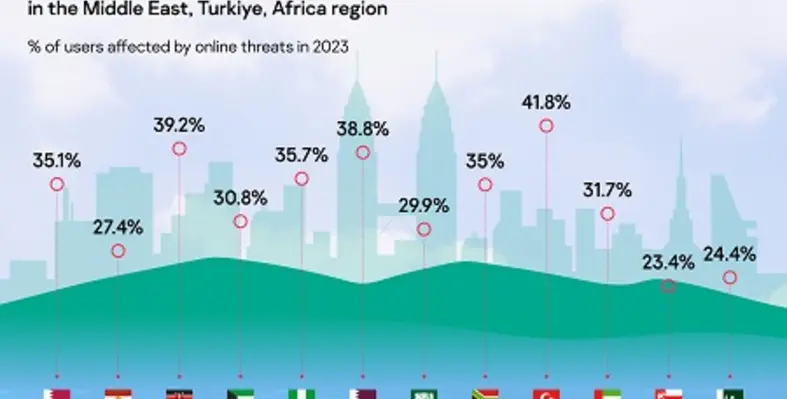At its 9th annual Cyber Security Weekend – META 2024, experts from Kaspersky, a global cyber security and digital privacy company, explored the evolution of Africa’s cyber threat landscape with dangers continuing to diversify and become more sophisticated
While in Kuala Lumpur, Malaysia, for the conference, attendees focused on the security of emerging technology trends such as Artificial Intelligence (AI) that, according to Kaspersky, are influencing the scale of modern threats. In addition, it was noted that threats are now targeting industrial control systems within critical infrastructure, posing a significant challenge for countries and companies across the African region.
“As the cybersecurity landscape evolves, cyber threats continue to become diverse and sophisticated,” commented Amin Hasbini, director of META Research Center Global Research and Analysis Team (GReAT), Kaspersky. “This trend is particularly evident due to the emergence of advanced technologies like AI and the escalating geopolitical and economic turbulence within the Middle East, Turkiye, Africa (META) region. These factors collectively contribute to the surge in cybercrime and the heightened complexity of cyberattacks.”
Going into detail for specific countries in the continent, Kaspersky telemetry has shown that the overall number of cyber threats in South Africa decreased by 29% in 2023 compares to 2022, but phishing attacks (using social engineering tactics to scam people into revealing sensitive information) increased by 29%. Nigeria, meanwhile, also an overall decrease in threats by 10%, but a rise of 8% was seen in relation to malware attacks (designed to collect online banking credentials and other sensitive information). Finally, Kenya also saw a decrease in overall threats (by 8%) but ransomware attacks rose by 68%, alongside backdoors by 47%, exploits by 22% and phishing by 19%.

Kaspersky’s analysis has shown that online threats caused by vulnerabilities on web pages, in emails or web services have fluctuated significant in the region. It showed that on the continent Keny saw the highest number of users affected by online threats (41.8%), followed by South Africa (35%) and then Egypt (27.4%).
In discussing such trends, at the conference, the company’s Cyber Immunity approach took centre stage as a way to create solutions that are virtually impossible to compromise and that minimise the number of potential vulnerabilities.
Kaspersky’s analysis follows the information released at the end of last year around the increasing threats towards mobile devices being experienced by users in Africa. Click here to discover the full story.












